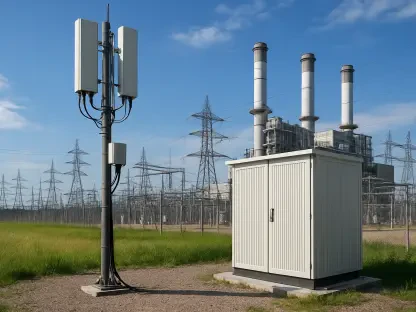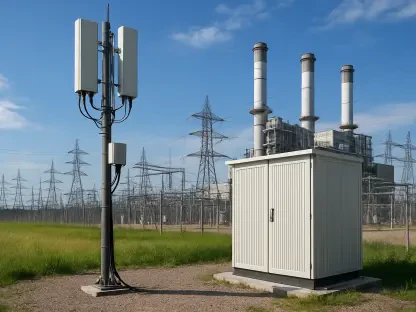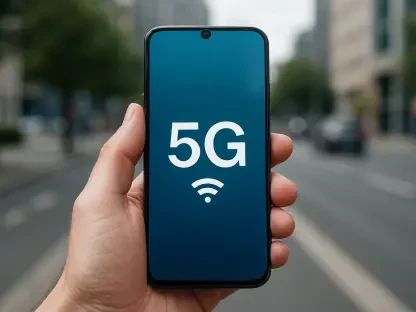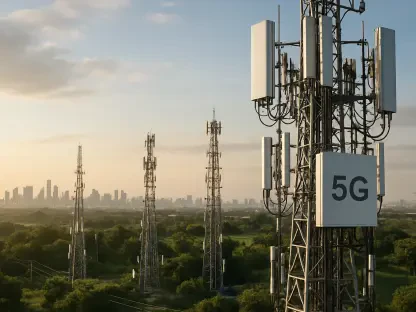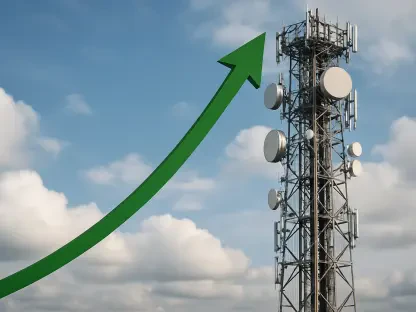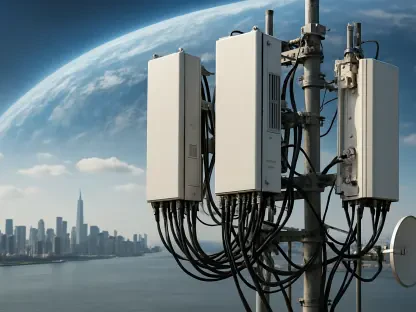In a world where digital connectivity is no longer a luxury but a necessity, many rural communities still grapple with the stark reality of inadequate internet access, leaving residents and businesses at a significant disadvantage compared to their urban counterparts. Ukiah, a small city in California, has taken a bold step forward to address this pressing issue through a groundbreaking initiative. With the support of a substantial grant from the California Public Utilities Commission (CPUC), the city is poised to transform its broadband landscape, ensuring that high-speed internet becomes both accessible and affordable for thousands of residents. This development marks a pivotal moment for the community, promising to bridge the digital divide that has long hindered economic growth and social equity in rural areas. By prioritizing modern infrastructure, Ukiah is setting an example for other underserved regions striving to keep pace with technological advancements.
Bridging the Digital Divide in Rural California
Transforming Connectivity with Fiber-Optic Technology
Ukiah’s ambitious plan to overhaul its internet infrastructure hinges on the deployment of a cutting-edge fiber-optic network, a technology renowned for its ability to transmit data at speeds far surpassing traditional options like copper wire or coaxial cables. Known as the Ukiah Gigabit Fiber Project, this initiative is backed by a nearly $5.6 million grant from the CPUC’s Last Mile Federal Funding Account program, specifically targeting underserved communities. The project aims to connect approximately 1,700 locations within the city limits, including homes, schools, and hospitals. Notably, 375 of these locations currently lack any form of internet access, underscoring the urgency of this upgrade. By introducing fiber-optic capabilities, the city anticipates not only faster download and upload speeds but also greater reliability, which is essential for activities ranging from remote learning to telemedicine in a rural setting.
The scope of this technological advancement extends beyond individual households to encompass critical public facilities, with 14 city-owned locations set to receive free high-speed internet as part of the initiative. This strategic focus on public services highlights the broader community benefits of enhanced connectivity, ensuring that essential institutions can operate more efficiently in an increasingly digital world. The partnership with Vero Fiber Networks, a key player in this project, facilitates the installation and maintenance of the network, leveraging private expertise to complement public funding. Construction is slated to begin in the winter, with a target completion date by the end of 2026, marking a significant milestone in Ukiah’s journey toward digital inclusion. This endeavor promises to redefine how rural communities can access and utilize modern internet services, setting a precedent for scalability in similar regions across the state.
Addressing Long-Standing Rural Challenges
Rural areas like Ukiah have historically been overlooked when it comes to investments in advanced internet infrastructure, often due to lower population density and the perceived lack of cost-effectiveness compared to urban centers. This disparity has left many residents and businesses struggling with outdated systems that fail to meet the demands of today’s digital economy. The CPUC grant serves as a crucial catalyst, providing the initial capital needed to attract private investment and make such projects viable. Andrea Trincado, the city’s project and grant manager, has emphasized that urban areas typically receive priority for technologies like fiber-optic networks, while rural communities are left with slower, less reliable options. Ukiah’s success in securing this funding represents a rare opportunity to level the playing field and address systemic inequities.
Beyond the technological upgrade, the project also focuses on economic implications, recognizing that limited internet access has long hindered local businesses and educational institutions in rural settings. The lack of reliable connectivity has often meant missed opportunities for growth, remote work, and online learning, particularly in underserved areas of the city. By implementing this fiber-optic network, Ukiah aims to empower its community with the tools needed to compete in a broader market, fostering innovation and attracting new economic activity. The collaborative effort between the city and Vero Fiber Networks, which will lease the infrastructure for 35 years, ensures a sustainable model for maintaining and expanding the network over time. This initiative stands as a testament to the power of targeted public-private partnerships in overcoming entrenched rural challenges.
Fostering Economic Growth and Social Equity
Ensuring Affordability for All Residents
A cornerstone of Ukiah’s broadband initiative is its commitment to affordability, ensuring that high-speed internet is within reach for all segments of the population, particularly low-income households. As a condition of the CPUC grant, the pricing structure includes a starting rate of $39.95 per month for eligible residents, with rates fixed for five years to provide financial stability. This approach directly addresses the economic barriers that often prevent rural communities from accessing quality internet services. By prioritizing affordability, the city aims to ensure that digital resources—vital for education, job searches, and healthcare—are not reserved solely for those who can afford premium plans, but are instead a universal right within the community.
The emphasis on digital equity is further reflected in the project’s design, which targets areas with the greatest need, including those currently without any internet access. This focus on inclusivity is expected to have a ripple effect, enhancing access to online learning for students, telemedicine for patients, and e-commerce opportunities for small businesses. City officials have underscored that affordable connectivity is not just about technology but about leveling opportunities for social and economic advancement. The partnership with Vero Fiber Networks reinforces this goal by combining private sector efficiency with public sector oversight to maintain fair pricing and broad coverage. As the project progresses toward its 2026 completion, it offers a blueprint for how affordability can be integrated into infrastructure projects to maximize community impact.
Setting a Model for Future Rural Initiatives
The broader significance of Ukiah’s Gigabit Fiber Project lies in its potential to serve as a replicable model for other rural communities grappling with similar connectivity issues. The unified stance among city officials reflects a shared understanding that enhanced internet access is indispensable for economic vitality and improved public services. By leveraging state funding and private partnerships, Ukiah demonstrates how targeted investments can address digital disparities that disproportionately affect less populated areas. This initiative sheds light on the importance of innovative funding mechanisms, like the CPUC’s grant program, in enabling rural areas to adopt advanced technologies that were previously out of reach due to financial constraints.
Moreover, the project’s success could inspire state and federal policymakers to prioritize rural broadband development in future budgets, recognizing the transformative impact of such investments. The narrative of Ukiah’s journey—from identifying the digital divide to implementing a comprehensive solution—offers valuable lessons on collaboration, planning, and execution. As construction moves forward over the next couple of years, the outcomes will likely provide data and insights that other communities can use to advocate for similar support. Reflecting on the efforts made, the groundwork laid through this grant and partnership in Ukiah establishes a foundation for lasting change, proving that rural areas can achieve digital parity with thoughtful, well-funded strategies.


